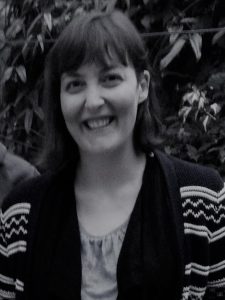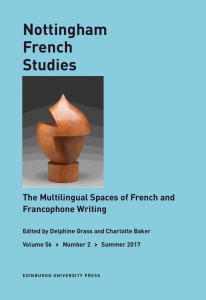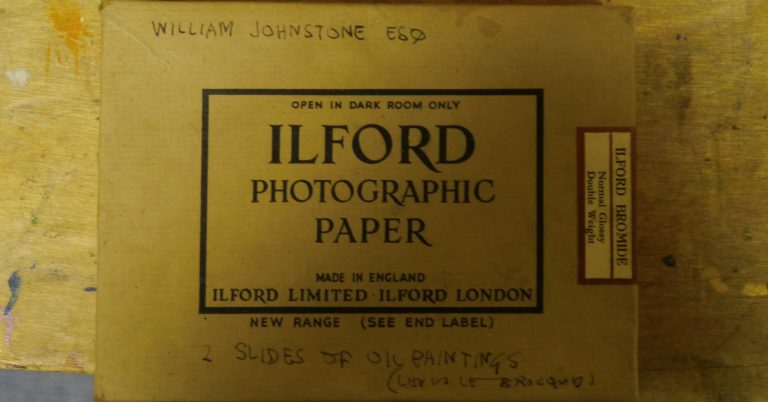

The notion of “sovereignty” has been made central to the debate heading toward Brexit, but what does it mean? Does ‘getting one’s country back’ mean recovering it from immigration, neoliberal capitalism, or both? Does it mean closing one’s borders and one’s mind from other cultures, and other voices? In the debates leading towards Brexit, the number of articles peddling the myth that immigration and non-native speakers lowered the standard of social cohesion of Great Britain to a dangerous level was quite noticeable. This was compounded by the rise of xenophobic attacks in the UK since the referendum, notably against people who were heard speaking a foreign language in public.
This is of particular interest to me because, while the notion of voice is symbolically central to democracy, much about democracy is about how we create participatory space through language and dialogue. Jacques Derrida goes as far as to say that democracy is a bare space where the self-same, and therefore the idea of the proper, of territoriality, is lacking, which to me suggests that this dialogue should take place between more than one language. In the special issue of The Multilingual Spaces of Francophone Writing which I co-edited with Dr. Charlotte Baker, several articles deal with the question of multilingualism from the perspective of politics and ideological power. In ‘Creole Language and Space: Entertaining Patrick Chamoiseau’s Texaco’ for example, Stanka Radovic shows how, in Chamoiseau’ novel, the use of more than one language is used to make political and territorial claims in the context of Martinique’s colonial past. Set in a Fort-de-France slum, Texaco makes visible the relationship between colonialism, power and language while contrasting the subjugating power held by French over its former colonies with Creole’s capacity to host or ‘entertain’ other languages. As other articles show in the Nottingham French Studies issue I recently editied, art and philosophy can fashion language as a tool for resisting powerful territorial and political hegemonies; much like, for better or for worse, Romanticism once played an immense role in supporting a particular ideology of language to prop up nationalism in Germany.

Equally, Laura Lonsdale’s essay ‘Jorge Semprun and the languages of democracy’ show how literature can fashion languages into powerful tools for remembering the past and resisting totalitarian oppression. In her essay, she shows that translation was central to Semprun’s understanding of democracy as a fluid, ever-changing and re-negotiated space of co-existence between a plurality of voices and memories. It is the same attitude to translation which, as Muris-Prime and O’Connor’s argue, opened the way for a new understanding of language within French poetry in the late-nineteenth and twentieth century. For many multilingual writers indeed, translation is seen to be at the centre of all human communication rather than a peripheral or unfortunate side-effect of language diversity. The importance given to translation by these writers has consequence on their understanding of the relationship between subjectivity and voice – as Eric Robertson’s overview of the impact of multilingualism on Modernism and avant-garde writing demonstrates. As I put forward in my own work, in order to have a healthy public sphere, democracies need to challenge the monolingual paradigm maintained by nationalisms. The two modernist poets my article focus on, Yvan Goll and Eugene Jolas, were both made refugees by an aggressive monolingual politics of nationalism which made life in their borderland, multilingual region of Lorraine impossible. For them, the question of language and naming became central to the construction of citizenship in the context of mass-displacement provoked by the Second World War, a concern which is echoed across many of modernism’s deconstruction of the relationship between voice and language in traditional narration.
As the 2017 summer special issue of Nottingham French Studies as a whole shows, if languages are not spoken in a political vacuum, they are never just the product of their political contexts: for better or for worse, they can be shaped by literature and the arts to resist jingoistic nationalisms and cultural oppression. It is about time literary research acknowledged that a writer’s tool is not a neutral medium of expression, but an object in itself fashioned by discourse and ideology, a territory already occupied by communal imagination in its own right. Failing to do this runs the risk of over-romanticising literature as a linguistic expression of subjectivity while omitting to examine the power-relations at play in the discourse surrounding those very languages.
Delphine Grass is a lecturer in French and Comparative Literature at Lancaster University. Her current research project focuses on the politics and poetics of multilingual creativity in the arts and literature. She is particularly interested in the multilingual works of twentieth-century art and poetry from the Alsace-Lorraine borderland, on which she has published several articles. A multilingual poet and translator, she is also the author of a number of papers on aspects of modernity in the works on Michel Houellebecq. She is co-translator, with Timothy Mathews, of his poetry collection Le Sens du Combat into English.




